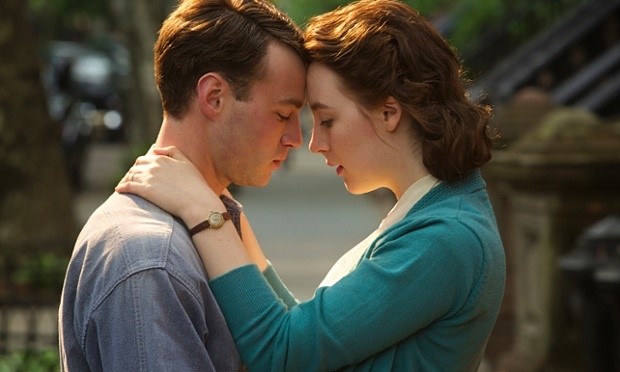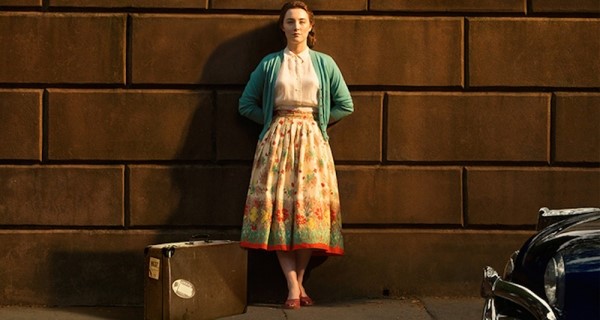Adapted by prolific author and screenwriter Nick Hornby (High Fidelity, Wild, About A Boy), Brooklyn tells the story of an Irish immigrant’s tale between two cities. Set in the 1950’s, audiences are swept into an exciting and traditional chronicle of heartbreak, romance and self-discovery. The film is beautifully directed by John Crowley with cinematic techniques of cinematography and mise-en-scene playing a key role in the film’s instinctive wonder. The historical piece stars Oscar-nominated Saiorse Ronan (Atonement, The Grand Budapest Hotel) as our leading lady with a captivating sense of naivety and poise; she is flanked by on-the-rise heartthrob Emory Cohen as her Italian romantic interest with admirable chemistry. This one pulls on the heartstrings with nostalgic tugs of homesickness, first loves and blossoming adulthood but separates itself from the stereotypical coming of age dramas with excellent scripting, fresh cinematography and a genuine sense of eccentricity.

(Tony (Emory Cohen) and Eilis (Saiorse Ronan) of Brooklyn, 2016)
The film follows Eilis (Saiorse Ronan), a young Irish woman who is offered the chance of employment over in infamous New York City circa 1950s. With guilt, she leaves her feeble mother and heartbreakingly insipid sister behind in the small town and boards the ship to the new land. She is guided by a youthful, stunning American woman aboard the ship on “how to be”, which is beautifully repeated in one of the final scenes of the film with Eilis now in these shoes. We observe her trials and tribulations through this unfamiliar, bustling and dazzling chaos and are too happy when a kind-hearted young Italian man, Tony (Emory Cohen) is enamoured by her. Not giving away any spoilers, Eilis is yanked back into the drone of Ireland, leaving her beau in the Brooklyn buzz. Despite her initial disparagement towards the return, she finds comfort in the familiarity and people; this final act in the film is one of incredible parallel, one that explores two separate cities and lives of one person and how each side tug feverously for their commitment.
The filmic techniques are masterfully woven into this film, with the use of cinematography, lighting and characterisation really only noticeable to those looking for it. The average eye would notice that something is different, that their attitudes towards scenes or characters are influenced in a different way, however not necessarily assume that this is due to the director’s choices in mise-en-scene.
The majority of the camera angles are shot at a 90-degree angle however constant centring of characters is rare besides the pivotal moments (almost chapters) beginnings and/or endings – they’re often off one side, to ensure “the cinematographic line” is not crossed. This technique is similar to that of Wes Anderson with his front-on style and square angles – a noticeable trope of Anderson’s filmography. Much of Crowley’s cinematography is eye-level in forms of close ups and mid-long shots – which gives audiences constant comfort and assurance that all characters are equal.

The director has further established lighting with softer and more intense lighting to accentuate mood in each scene. Our former scenes in gloomy-weathered Ireland are glum and dimmed, with blue-tone soft lighting to play up the miserable weather and intended tone. Once Eilis arrives in New York, scenes are extremely well-lit with yellow hues and stark brightness. This dims a little with her mood but picks back up again as her relationship with Tony and her attitudes towards life in this city become, pun intended, brighter.
This film really does separate itself from its “boxed” genres… one may call it a coming-of-age, another may call it a period piece however both are not definitively accurate. It is too sophisticated and strays away from many of the tropes of the coming-of-age genre in an extremely refreshing way however still deals with the romantic sub-plot and overcomes maturing themes. It is obviously set in the past which does make it a historical drama but it touches artistically on modern issues and rather shows the progressive version of the era as what women couldn’t do, or what foreigners were not able to achieve is not the focus – this story is truly Eilis’s journey. I wouldn’t be surprised if Saiorse Ronan took home the Oscar for this one.
